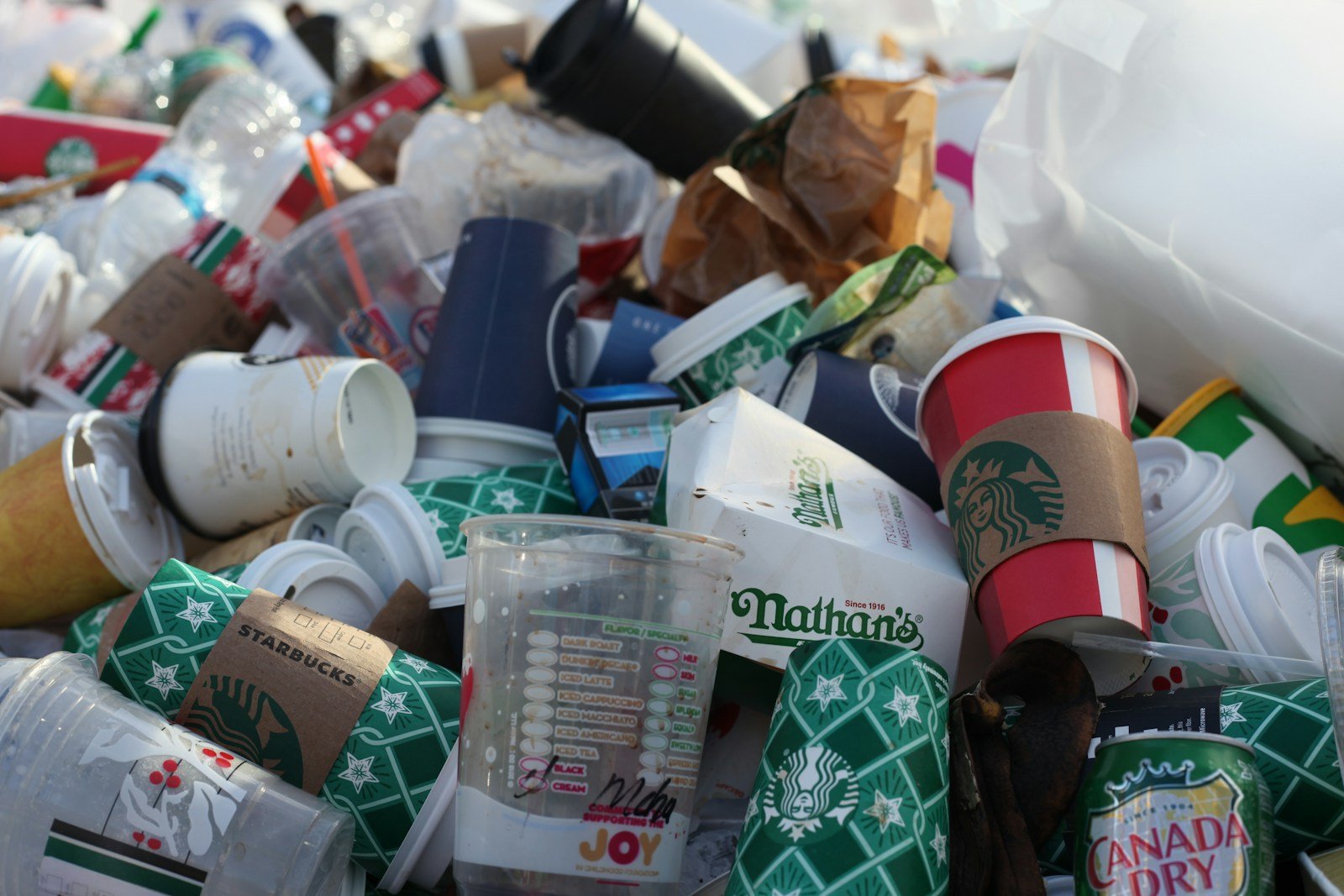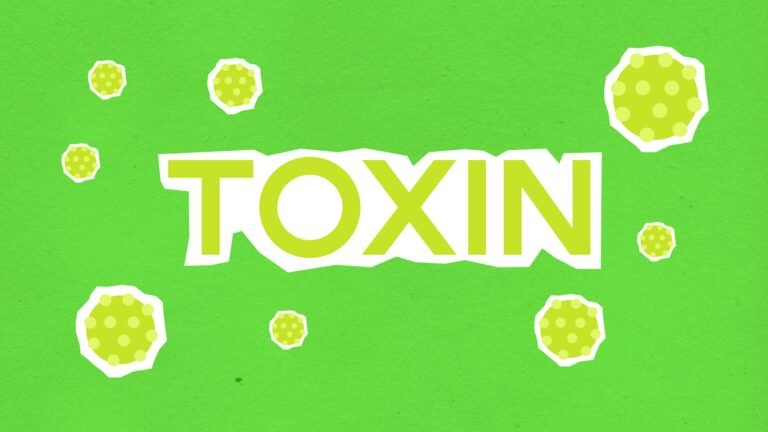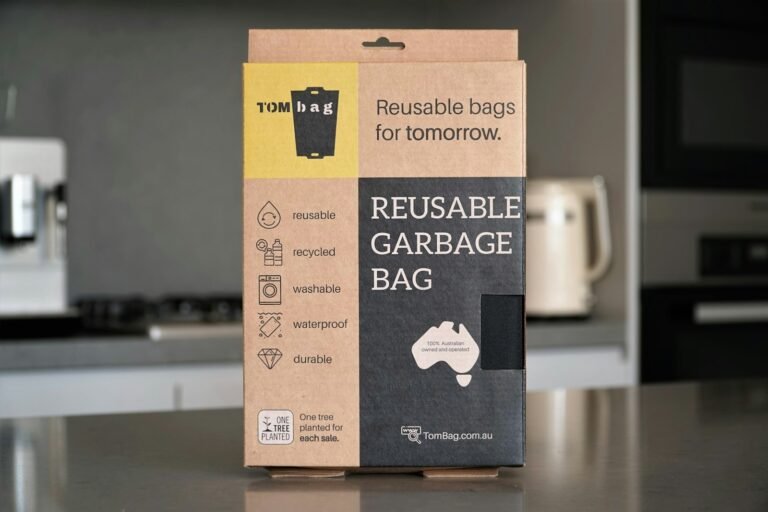How to Reduce Plastic Use for Better Health
Most people don’t realize how much plastic is a part of their daily lives, and the impact it can have on your health. By making smarter choices and adopting simple habits, you can significantly reduce your plastic use while promoting a healthier lifestyle for yourself and the planet. In this post, you’ll discover practical tips and strategies to help you cut down on plastic, making your life more sustainable and your health a priority. Let’s dive in and explore how you can make a positive change today!
Key Takeaways:
- Opt for reusable bags, containers, and bottles to minimize single-use plastics.
- Educate yourself on plastic-free alternatives for everyday items like toiletries and cleaning supplies.
- Support local and sustainable businesses that prioritize eco-friendly packaging.
- Be mindful of food packaging; choose fresh produce and bulk items where possible.
- Advocate for policies that promote plastic reduction and environmental sustainability in your community.
The Toxic Reality of Plastic
How Plastic Affects Your Health
Exposure to plastic can lead to a variety of health issues that many people overlook. Chemicals found in plastic, such as bisphenol A (BPA) and phthalates, are known to disrupt endocrine functions, which can impact your hormone levels and overall metabolism. For instance, BPA, commonly used in food packaging, has been linked to reproductive issues, developmental problems in children, and an increased risk of certain cancers. You may not realize it, but the plastic containers you use for food storage can leach these harmful substances, affecting your health and potentially leading to long-term consequences.
While immediate side effects of plastic exposure might not be obvious, studies indicate that the accumulation of these toxic substances can lead to chronic health issues. Regular consumption of food or drinks packed in plastics can increase your exposure to microplastics, tiny debris that can enter your bloodstream and tissues, creating unforeseen problems for your immune system. The growing body of research reflects a worrying trend, with some studies showing a direct correlation between plastic exposure and obesity, diabetes, and cardiovascular diseases, demonstrating that your daily choices can have serious implications for your well-being.
The Long-Term Consequences of Plastic Pollution
Beyond immediate health effects, plastic pollution poses a significant long-term threat to your health and the environment. Chemicals from plastics can enter larger ecosystems, affecting not only wildlife but also the food chain that ultimately leads back to you. Marine animals often ingest plastics, and when you consume seafood, you may inadvertently absorb these harmful substances, which can lead to chronic health conditions. This interconnectedness means that even if you’re practicing sustainable habits, you’re still at risk of exposure through contaminated food sources.
As plastic waste continues to accumulate, the impact worsens over time. Countries around the world are grappling with rising levels of plastic litter, and studies have shown that certain areas are becoming hotspots for microplastic accumulation. This plastic pollution is not just an environmental concern; it has cascading effects on human health, including increased risk of cancers and reproductive disorders as a result of accumulating toxins in your body. Ongoing exposure can lead to less visible but equally damaging consequences, manifesting as long-term chronic diseases that can alter the quality of life for generations to come. Adopting measures to reduce your plastic use not only benefits your individual health but also contributes to the broader fight against this persistent problem.
Simple Swaps for Everyday Life
Alternatives to Common Plastic Items
Finding alternatives to common plastic items is easier than you might think. For instance, instead of reaching for plastic wrap to cover leftovers, consider using beeswax wraps or glass containers with lids. These options not only keep your food fresh but also reduce the amount of plastic waste you generate. Similarly, swap out plastic cutlery and straws for reusable metal or bamboo options. This single change can significantly cut down the plastic waste you produce during meals, especially if you often grab takeout or eat on the go.
Another excellent swap is replacing plastic water bottles with a reusable one made from stainless steel or glass. Not only do these materials keep your drinks cooler for longer, but they also eliminate the risk of harmful chemicals leaching into your beverage. You can also choose wooden or glass storage containers in place of plastic ones when organizing your pantry. Every small change contributes to a larger commitment to reducing plastic in your life.
The Magic of Reusables: Water Bottles, Bags, and More
Investing in reusables can transform your daily routine while significantly cutting down on plastic waste. A sturdy, reusable water bottle enables you to hydrate on the go while avoiding single-use plastic bottles that end up in landfills. Similarly, opting for cloth bags instead of plastic ones for shopping not only helps the environment but also keeps your groceries safe and secure. You may find that these bags are more durable, reducing the need for frequent replacements.
Beyond shopping bags and water bottles, consider reusables for food storage and meal prep. Silicone food bags, which can be washed and reused, are an excellent substitute for single-use plastic sandwich and snack bags. Investing in these reusable alternatives can save you money over time and help you maintain a healthier lifestyle by reducing your exposure to the harmful chemicals found in certain plastics.
Smart Shopping: Reducing Plastic at the Store
Navigating the Grocery Aisle with Fewer Plastics
Steering through the grocery store with a plastic-conscious mindset can significantly impact your health and environment. Start by opting for fresh produce where possible, as fruits and vegetables are often sold with minimal packaging. Use reusable produce bags to replace those slim plastic alternatives. Not only do they help reduce your plastic consumption, but they also keep your groceries tidy and organized. If you can, frequent local farmers’ markets where goods are often sold without plastic coverings or in compostable bags, allowing you to enjoy fresh, seasonal produce while supporting your community.
Taking a closer look at bulk sections can also yield wonderful options for reducing plastic. Many grocery stores offer bulk bins for grains, nuts, and snacks, which allow you to fill your own containers. This not only cuts down on plastic waste but lets you buy exactly what you need—no more half-empty bags cluttering your pantry. Bring along your own glass jars or cloth bags to make the experience even more sustainable, and always check for stores that encourage bringing your own containers for items like deli meats or cheeses.
Choosing Eco-Friendly Brands and Packaging
Exploring eco-friendly brands can transform your shopping experience and lower your plastic footprint. Many companies now prioritize sustainability by using biodegradable materials or recyclable packaging. Familiarize yourself with these brands by doing a little research or checking for labels that indicate eco-friendly practices. Brands committed to reducing their plastic use would often carry certifications such as the “Green Seal,” or feature their sustainable initiatives clearly on their packaging.
The shift towards sustainability isn’t just a trend; it’s rapidly becoming the standard as consumers demand more responsible options. Many brands have started offering products in glass, metal, or compostable packaging—an excellent step toward protecting both your health and the environment. For example, companies like Beyond Meat and Thrive Market champion eco-conscious choices by providing plant-based food options with minimal plastic waste. Diving deeper into this eco-friendly realm not only supports your health but also drives the market toward more sustainable practices, so you’ll find your impact extending beyond your own shopping choices.
Mindset Shift: Embracing a Plastic-Less Lifestyle
Cultivating Awareness and Intentionality
Shifting your mindset toward a plastic-less lifestyle begins with a conscious awareness of your daily habits. Start by observing the plastic items that frequently enter your home, from packaging to utensils and bags. Documenting these habits for just a week can shed light on areas where you can make immediate changes. For instance, if you notice a heavy reliance on single-use plastic bottles, consider investing in a reusable water bottle that fits your style. This simple swap not only reduces plastic waste but also encourages you to stay hydrated sustainably.
Intentional decision-making is integral to this transformation. By prioritizing products with minimal or no plastic packaging, you align your choices with your health and environmental values. Opting for bulk bins, local farmers’ markets, and eco-friendly brands can fill your pantry with wholesome ingredients while minimizing plastic consumption. Each time you choose a reusable product over single-use plastic, you not only contribute to a healthier planet, but you also cultivate a sense of accomplishment, reinforcing your commitment to this lifestyle.
The Role of Community in Reducing Plastic Use
Joining forces with like-minded individuals can amplify your efforts to reduce plastic use. Engaging with community groups that focus on sustainability creates opportunities for collective action. Local initiatives such as community clean-up events, clothing swaps, or plastic-free challenges foster collaboration and inspire accountability among participants. Many cities now host regular workshops where you can learn sustainable practices, from DIY household cleaners to zero-waste cooking, all while connecting with fellow eco-enthusiasts.
The power of community extends beyond shared practices; it enriches your experience by creating a network of support and inspiration. When you see friends and neighbors making strides toward a plastic-less lifestyle, it motivates you to take bolder steps in your journey. For example, participating in a local beach cleanup not only helps the environment but also raises awareness among others about the impact of plastic waste. Sharing your successes and challenges can transform individual efforts into a powerful wave of change, leading to a sustainable community united in the pursuit of a healthier planet.
Innovative Solutions for a Greener Tomorrow
Emerging Technologies and Products That Help
As the plastic crisis intensifies, innovative technologies and products are emerging to help you navigate a safer, healthier future. From biodegradable alternatives to advanced recycling techniques, the landscape of sustainable solutions is evolving rapidly. For instance, brands are now introducing packaging made from plant materials, which can decompose within months, unlike traditional plastics that linger for hundreds of years. Companies like Biopak and Eco-Products are pioneering these eco-friendly materials, allowing you to reduce your plastic footprint while still enjoying the convenience of packaging.
In addition, cutting-edge recycling methods, such as chemical recycling, are gaining traction. This technique involves breaking down used plastics into their fundamental components, allowing them to be reconstituted and reused in new products. This means that rather than simply burying plastics or shipping them overseas, you can contribute to a circular economy where materials are constantly repurposed. Exploring these novel solutions keeps you ahead in your commitment to reducing plastic, making sustainable choices that harmonize with your lifestyle.
How Legislation Can Drive Change
Legislation plays a pivotal role in pushing society towards innovative solutions in the fight against plastic waste. With governments around the globe recognizing the urgency of the plastic crisis, numerous countries are implementing bans on single-use plastics. For example, the European Union set ambitious targets to phase out specific plastic items by 2021, prompting businesses to seek alternative materials and encouraging you to embrace more sustainable practices. Such legislative efforts not only pave the way for a cleaner environment but also stimulate market demand for eco-friendly products, providing you with more choices in your shopping experience.
Moreover, local initiatives such as incentives for businesses that adopt sustainable practices can further shift mindsets. By supporting these policies, you’re not just fostering change within your community but also advocating for a marketplace that prioritizes health and sustainability. The impact of collective change tends to amplify, encouraging more significant participation and awareness in reducing plastic use. Your engagement with policy initiatives could serve as a powerful catalyst, inspiring others to join the movement and creating a ripple effect in preserving our planet.
Summing Up
So, reducing your plastic use is not only a great way to contribute to a healthier planet but also to improve your own well-being. By making small changes in your daily life, like opting for reusable bags, bottles, and containers, you can significantly decrease the amount of plastic you consume. It’s about making mindful choices that benefit both you and the environment. Each step you take can lead to a more sustainable lifestyle and a healthier you.
Embracing alternatives to plastic is a journey worth taking, and there are plenty of resources available to help guide you. For more tips on how to Reduce Your Plastic Use, explore new habits that can transform your relationship with plastic. You’ll not only feel good about your choices but also inspire those around you to make similar changes. Every small action counts, and together, we can pave the way for a healthier future.
FAQ
Q: Why is reducing plastic use important for health?
A: Reducing plastic use is important for health because many plastics can leach harmful chemicals into food and beverages, especially when heated. These chemicals, such as BPA and phthalates, have been linked to various health issues including hormonal imbalances, reproductive problems, and increased risk of chronic diseases. By minimizing plastic exposure, we can promote overall wellness and foster a healthier environment.
Q: What are some practical ways to reduce plastic in daily life?
A: There are numerous practical ways to reduce plastic use, such as:
- Using reusable bags, bottles, and containers to minimize single-use plastic.
- Choosing bulk or package-free products when shopping.
- Opting for glass, stainless steel, or other sustainable materials for food storage and transportation.
- Composting organic waste instead of using plastic bags for trash.
- Supporting businesses that focus on sustainable practices and offer eco-friendly products.
Q: Can reducing plastic usage have an impact on mental health?
A: Yes, reducing plastic usage can positively impact mental health. Engaging in environmentally friendly practices such as reducing plastic can promote a sense of responsibility and connection to the environment, which can enhance mental well-being. Additionally, many find that the benefits of adopting a more minimalist lifestyle, free from excess plastic clutter, leads to reduced anxiety and increased satisfaction as they create a healthier living space.
Q: Are there alternatives to common plastic items that are better for health?
A: Yes, there are numerous alternatives to common plastic items that are healthier choices. For example:
- Replace plastic water bottles with glass or stainless steel bottles.
- Substitute plastic straws with options made of bamboo, silicone, or metal.
- Choose wooden or stainless steel utensils over plastic cutlery.
- Use beeswax wraps instead of plastic wrap for food storage.
- Buy personal care products with glass or recyclable packaging instead of plastic.
Q: How can communities encourage reduced plastic consumption for better health?
A: Communities can take several steps to encourage reduced plastic consumption, such as:
- Organizing community clean-up events to raise awareness about plastic pollution.
- Implementing educational programs in schools to promote the benefits of reducing plastic.
- Lobbying for local policies and regulations that support the reduction of single-use plastics.
- Creating local markets that emphasize reusable and bulk purchasing options.
- Encouraging businesses to adopt sustainable practices by offering incentives for using eco-friendly materials.








